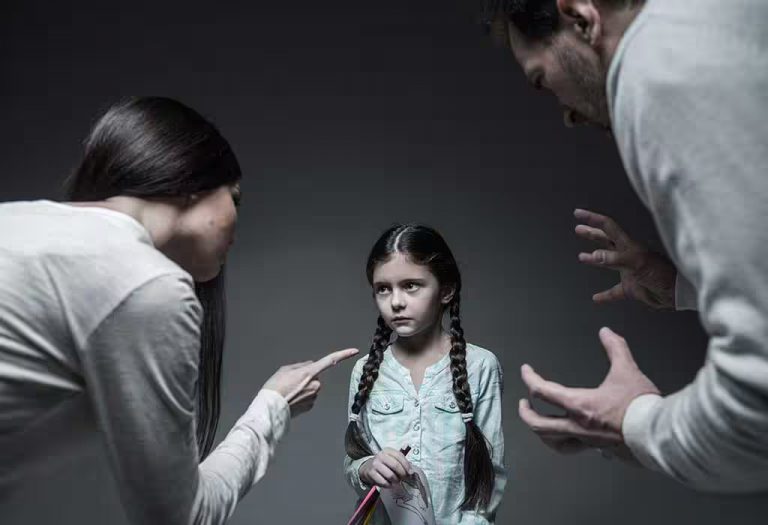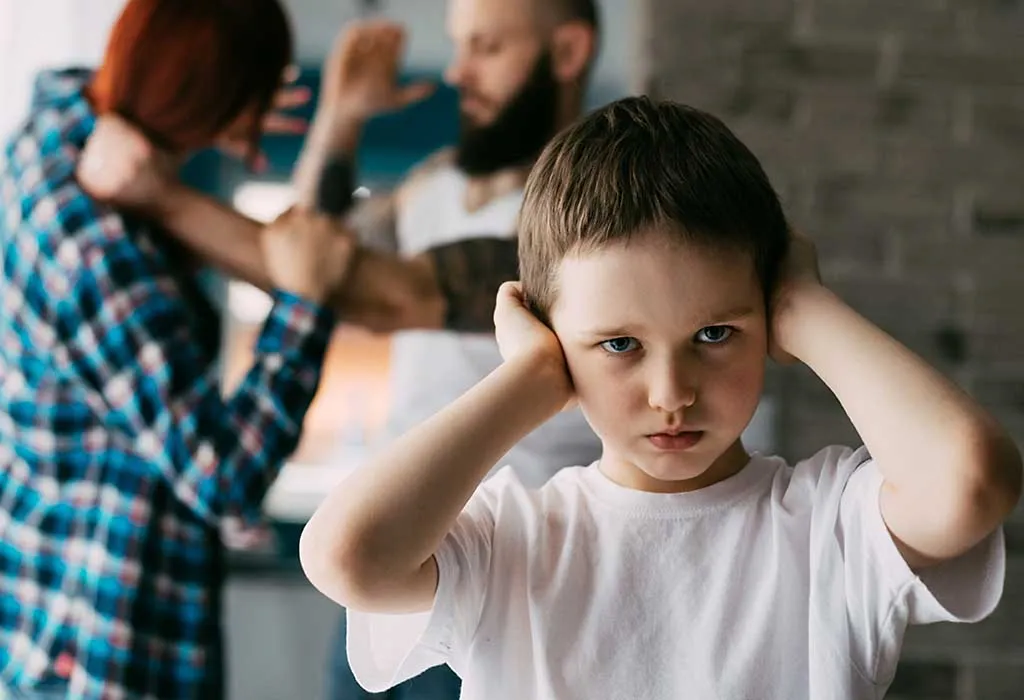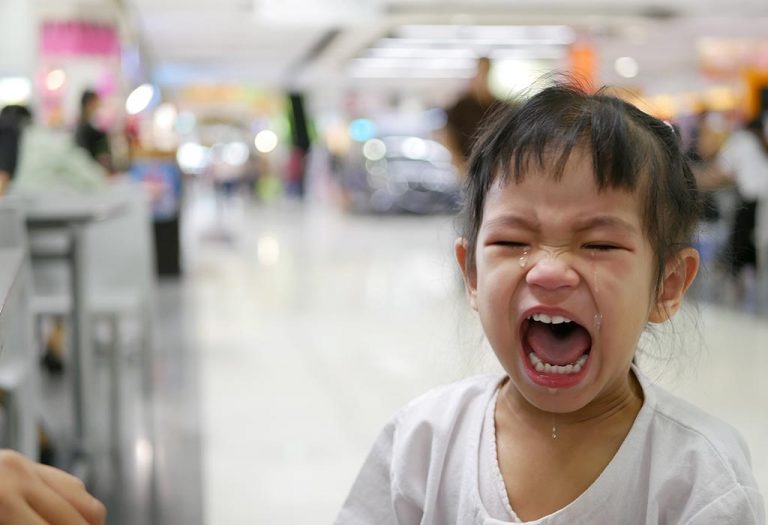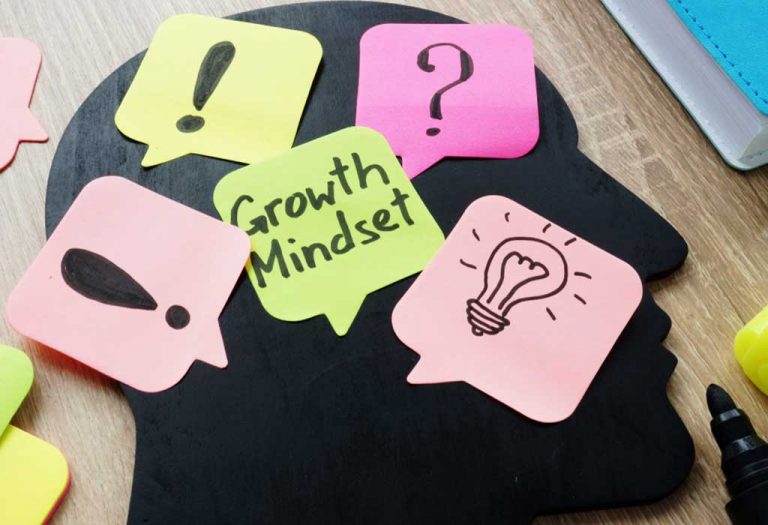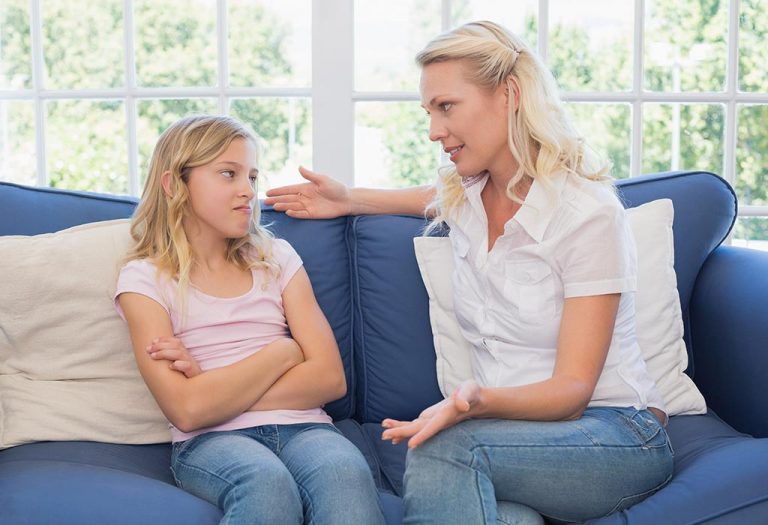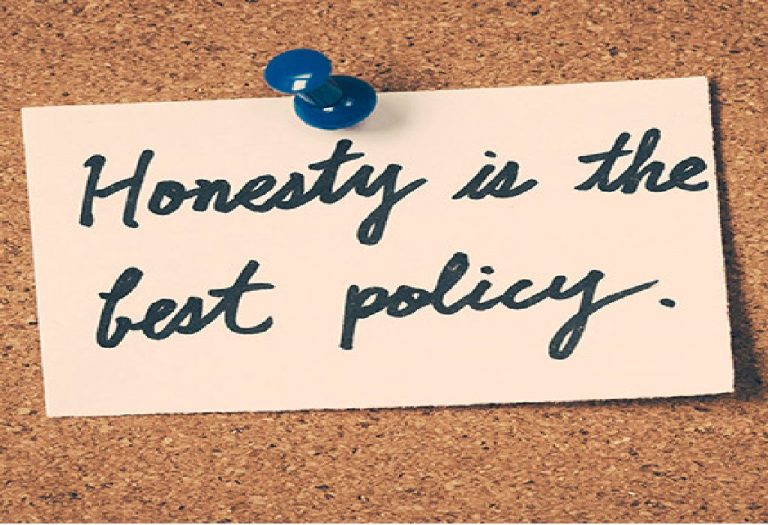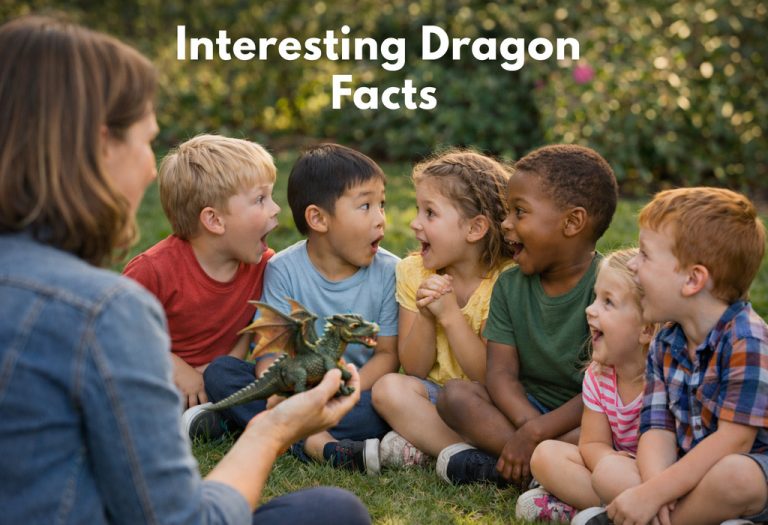Toxic Parenting – Signs, Types, and How to Deal with It
Toxic relationships with parents affect the mental health and general welfare of children. The difference between poor parenting and toxic parenting is only a matter of degree. Lacking insight, maturity, or compassion, toxic parents may cause mental and physical agony, trauma, and lasting mental problems for their children. Displaying toxic behaviour is different, and being a toxic parent to your child unknowingly is on another level. So, what exactly is a toxic parent and what traits or characteristics make one a toxic mother and father? For starters, we need to check dysfunctional parenting patterns and then find ways to foster a healthy relationship with children and gift them a happy childhood. Continue to learn everything about toxic parenting.
What Is Toxic Parenting?
Emotionally healthy parents understand their children’s feelings, encourage them to follow their dreams, apologize when they make mistakes, and discuss problems through healthy communication. However, some families operate on dysfunctional rules, where critical, controlling, and abusive parents who neglect the needs of their children are considered normal. Going beyond the occasional mistake, parents with consistently harmful behaviour can become highly destructive.
They fail to realize that such an upbringing hiding behind the excuse of “tempering the character” can lead to an unimaginable amount of psychological damage that will necessitate a lifetime of therapy. Most children can deal with an occasional outburst of anger but need a certain amount of love, reassurance, and understanding to counter its adverse effects. When a child is raised through repetitive abuse, loathing, judgment, and criticism for their behaviour, personality, or performance, it leaves them feeling demoralized and with low confidence. This may also lead to toxic stress in children due to a lack of protective support from primary caregivers or due to maternal depression or abuse of illegal substances by parents (1).
Unfortunately, this toxic parent behaviour extends to how they treat their children. Often, narcissism, emotional disorders, alcoholism, or addiction are personality traits that veer into the toxic category of parents. ‘Toxic’ isn’t a medical term or a clearly defined concept. This harmful parenting style takes away from children the love, warmth, and nurturing that they deserve. Being under the shadow of fear, guilt, and obligation, their constant pursuit for validation and approval to prove themselves worthy persists throughout their lives.
In short, toxic parenting meaning is a pattern of unpleasant or harmful behaviour that disturbs a child’s mental health due to emotional manipulation, physical intimidation, and/or verbal belittlement inflicted on children.
What Type of a Toxic Parent Are You?
Parents are never suitably prepared or equipped for the responsibility of parenthood. Personal experiences of their childhood guide them to take up the duties of a parent. Here are different types of parents that would help them identify and avoid toxic behaviour:
1. Inadequate Parents
Inadequate parents experience feelings of guilt and despair. They may constantly focus on their problems and share their deepest feelings and thoughts with the kids, using them as a buffer during emotional crises. Such kids grow up as mini-adults who become self-reliant.
2. The Controlling Parent
A controlling parent doubts their children’s abilities and uses care, guilt, manipulation, and over-helpfulness to direct their lives. They dictate and control their children’s feelings, thoughts and decisions. As they’re scared to become irrelevant in the family, they make their children feel helpless and over-dependent on their parents.
3. The Substance Abusers
Alcoholic parents have very little time or energy for the demands of parenthood. They get violent in anger and show unpredictable or aggressive behaviour. Using denial, stress, or professional problems as a weapon, these parents deny that the problem exists in principle.
4. The Verbal Abusers
Some parents use ridicule, sarcasm, insulting nicknames, and humiliation as weapons of verbal attacks to comment on a child’s appearance, competence, intelligence, or value as a human being.
5. The Physical Abusers
Physical abusers are incapable of controlling their rage and use it to control their children. Although advocates of corporal punishment justify their behaviour as it would make the child courageous and strong, in reality, it inflicts the strongest mental, emotional and physical scars for life.
6. The Sexual Abusers
Incest is an act of complete perversion and an emotionally destructive betrayal of the fundamental trust between a child and a parent. It destroys their innocent childhood, giving way to helplessness, despair, constant anger, and fantasies about revenge.
Signs That You Are a Toxic Parent
Parents are supposed to be caregivers of their children. Sometimes, this need makes them vulnerable to being parented by wounded people. Overcoming toxic parents is possible by being aware of their existence, acknowledging it as unacceptable behaviour, and recognizing the changes necessary for cultivating healing relationships within the family. Cleveland Clinic explains some signs that show that you are a toxic parent (2):
1. Self-centered Behaviour
Some parents may be self-absorbed, unavailable, selfish, or uncaring when it comes to their children’s needs. When they are physically or emotionally detached, they refuse to understand the feelings of others.
2. Emotionally Reactive
Toxic parents are unable to control their emotions, leading to emotional outbursts and unpredictable behaviour. They often overreact, become dramatic, or exaggerate incidences.
3. Controlling Behaviour
Toxic parents refuse to accept the child as a grown adult who has a separate identity and can make their own decisions. They exert power and control through guilt and money. They invade their child’s privacy by reading their emails, coming over uninvited, offering unsolicited advice, and taking action regarding their personal life without consulting.
4. Demanding Nature
Overly demanding parents expect their children to disregard their schedules to tend to their needs. They constantly use threats or manipulative behaviour to seek attention from children.
5. Emotional Abuse
Hurling cruel racist jokes and making sexual advances towards the spouse can be highly embarrassing for children, especially young adults. Parents consuming drugs, engaging in illegal activities, discussing adult issues like legal troubles and finances, or arguing with their spouse in front of the kids can be considered emotional abuse.
6. Manipulative Behaviour
Toxic parents can be downright mean and manipulative. By twisting the truth, they portray themselves as the ‘good cop.’ They use guilt, denial, and trivializing to achieve their goal.
7. Unnecessary Arguments in Front of Children
Parents should have the presence of mind to engage in an argument with their spouse away from their children in private. Screaming and yelling can send a terrible signal about a conflict that needs to be handled.
8. Critical Behaviour
A toxic parent is never satisfied with their child’s achievements. They get busy finding fault, pointing out shortcomings, mocking, calling names, and intentionally bringing up sensitive topics that they know would hurt their children.
9. Treating Children Like Adults
When families don’t have firm boundaries, the roles of the members get blurred. In dysfunctional families, parents tend to expose their children to issues that are inappropriate for their age. They relay messages and broker deals between arguing parents or approving who their parents date or pay bills, which are tasks that can cause conduct disorder in children.
10. Keeping Secrets
Toxic parents refuse to acknowledge a problem. They feel silence can erase a traumatic situation like sexual abuse inflicted on a child by an older family member. They forbid the child to talk about it and blame it on peers or the school system or chalk it up as a growing phase.
Can Toxic Parenting Affect Your Kids?
Living with a toxic parent can leave a lasting impact on a child. After dealing with toxic parents throughout their childhood, children show exaggerated behaviour that reflects their dysfunctional family unit or emotionally unhealthy parents. Here are some of the effects of toxic parenting on kids:
- Adult children of toxic parents struggle with anxiety, depression, low self-esteem, and personality disorders.
- Children of toxic parents often face difficulty in forming meaningful relationships after growing up.
- Toxic parenting erodes a child’s self-esteem, confidence, and self-worth
- When parents always shield kids from pain, they lack the experience to deal with pain and often become adults who crumble when they encounter adversity.
- Scaring kids to gain compliance can backfire. They would be more likely to make decisions based on fear instead of a healthy moral judgment.
Cons of Toxic Parenting
The toxic behaviour of parents influences their kids’ feelings of self-worth, perception, trust in others, and general worldview. Having toxic parents can be a challenge for kids while growing up. Research suggests that parental neglect and child abuse can have lasting developmental problems in the adolescence and adulthood of children, including poor physical health, mental health disorders, and illegal substance use (3). Here are some of the cons of toxic parenting (4) (5):
1. Anxiety Disorder
Giving kids age-inappropriate information and more responsibility than they can handle raises their anxiety level and leaves them feeling ill-equipped to deal with a task.
2. Post-Traumatic Stress Disorder (PTSD)
Children of abusive parents are more likely to suffer from post-traumatic stress disorder (PTSD). As they get more alert about matters, they tend to anticipate more danger in the future.
3. Highly Self-Critical and Blame Themselves for Everything
Toxic parents who exercise conditional love make their children feel unworthy of love. Feeling highly self-critical or blaming themselves for everything, they feel pressured to prove themselves, anticipating better treatment by doing so.
4. Increased Health Problems in Future
Researchers believe that kids from dysfunctional families are at a higher risk of developing heart problems and a weakened immune system due to chronic stress and traumatic experiences.
5. Children Have a Hard Time ‘Saying No’ or Making Decisions for Themselves
As boundaries are non-existent or crossed in dysfunctional households, children of toxic parents find it very hard to say no to things after they grow up, as they aren’t allowed to have control over their lives.
Does the Toxic Parenting Cycle Continue?
Regardless of whether toxic parents are toxic purposefully, it leaves deep wounds in the relationship. This makes the road to reconciliation arduous and uncertain. It’s only a matter of time before they imbibe the negative character traits from their parents and repeat the toxic behaviour delivered to them. After becoming abusive adults themselves, they start a cycle in their own family life that is hard to escape. Thus, from dealing with toxic parents to becoming one gets very easy for impacted children.
How to Stop Being a Toxic Parent?
In case you lead a life as a toxic parent, there’s a way out to heal and move forward. Here are some strategies that will help in breaking free:
1. Be the Bigger Person
Parents are grown-ups. So, apply the advantages of maturity to break the silence, extend the olive branch, and work towards restoring healthy communication after a fight with your child.
2. Respect Their Choices
Imposing your will on your child can be damaging to their sense of self. Letting them choose their activities and supporting and cheering them in their achievements and failures helps build a strong bond.
3. ‘Messing Up’ Is Fine
Instead of getting angry or upset and reprimanding kids when they mess up, accept that everyone makes mistakes and allow your child to be human and fallible. They learn from their error and will ultimately succeed by improving themselves.
4. Conversation Helps
Sitting your child down and talking to them about any unwanted or unpleasant behaviour always helps. Instead of yelling without ever stopping to get their children’s side of the story doesn’t help in the long run.
5. Bribing Doesn’t Help
Be careful never to bribe a child with money or toys to stay silent or keep secrets. This kind of parenting also amounts to toxic parenting.
6. Cut the Cord
A parent’s job is to raise a child capable of being an independent adult. So, start with giving them small, age-appropriate responsibilities that they can handle. This trust will help to build their self-confidence and get a sense of achievement.
7. Practice Self-Care
Taking good care of yourself by maintaining good eating habits, exercising regularly, getting out, and making time for hobbies that you enjoy makes you feel physically and psychologically energized to deal with your children. It also prevents showing resentment towards your kids for the sacrifices you make for them.
8. Understand the Difference Between Criticizing and Correcting
Parents need to be a guide, not a critic. Teach your child a work ethic and help build their academic skills – setting a goal can motivate them to try harder. While personal insults and criticisms can break their spirit and make them want to give up, correction strengthens the will and opens the door for positive reinforcement.
FAQs
1. How to do co-parenting with a toxic parent?
It is possible that you didn’t have a toxic parent, but your partner had one or is one. In such cases, challenges and heartaches are going to be a part of parenting, but nothing is impossible. Remind yourself that you are an equal part of the equation and have equal powers to parent your child and steer them in a positive direction. You can start by setting some boundaries with your ex on how parenting should be and what type of parent you both would want to be. Secondly, you can make house rules and kids rules to be followed at both houses. Remind yourself that your child is just a kid and learning their way to life through mistakes and learning. So, don’t be hard on them or yourself and try to understand their feelings. Show empathy and kindness to them, and they’ll learn the same from you (6).
2. What is the difference between toxic parenting and authoritarian parenting?
Toxic parenting and authoritarian parenting may seem almost similar, but they are not always the same. Authoritarian parents lay out strict rules, demand obedience and high expectations from children, and expect little counter-questioning from children. While authoritarian parenting believes in strict rules, it does not use harmful tactics. Toxic parenting, however, does use harmful tactics for disciplining children. Authoritarian parenting takes the route of toxicity when parents put harsh punishments, emotional neglect, constant criticism, and instilling fear of enforcement.
3. What impact does growing up in a toxic household have on relationships in adulthood?
Growing up in a toxic household can leave a lasting impact on a child and their adulthood. Toxic households often seed deep-seated trust issues among the members, making it difficult for children to create meaningful relationships in their adulthood. Due to constant conflict, betrayal, and manipulation within the family, children associate relationships with vulnerability, conflict, and lack of reliability. Thus, lack of trust and fear of intimacy and betrayal often prevent children from building authentic connections with anybody in their adulthood. Adults raised in toxic households often prioritise other’s needs over theirs, have difficulty setting boundaries, and fail to recognise self-worth.
4. Can toxic parenting cause parenting alienation?
Yes, it is possible for toxic parenting to lead to parenting alienation, which is basically a child becoming alienated from the other parent due to various reasons like manipulative behaviour of the toxic parent, physical abuse, emotional abuse, adult alcoholism, parental abandonment, or narcissism (7). Manipulative behaviour causing parenting alienation alters the child’s perceptions and beliefs, causing a profound loss of individual self, childhood experiences, and healthy relations with the friends and family of the child (8).
Concerned parents who want to do things right and are willing to examine themselves critically need to identify signs of toxicity in their relationship with their children. This healthy degree of self-awareness and the desire to make positive changes will go a long way in raising smart, successful, and confident children who share a good relationship with you.
References/Resources:
2. Cleveland Clinic – How to Tell if You Have a Toxic Parent
5. Haiti Now – Neurobiological and Psychiatric Consequences of Child Abuse and Neglect
6. The Office of the Attorney General of Texas – Co-Parenting Guide
7. NCSC – Parental Alienation Can Be Emotional Child Abuse
8. NLM – Losses experienced by children alienated from a parent
Also Read:
Positive Parenting
Parent-Child Relationship Bonding
Ways to Improve Your Parenting Skills
Signs of Bad Parenting & Its Impact on Children
Was This Article Helpful?
Parenting is a huge responsibility, for you as a caregiver, but also for us as a parenting content platform. We understand that and take our responsibility of creating credible content seriously. FirstCry Parenting articles are written and published only after extensive research using factually sound references to deliver quality content that is accurate, validated by experts, and completely reliable. To understand how we go about creating content that is credible, read our editorial policy here.





